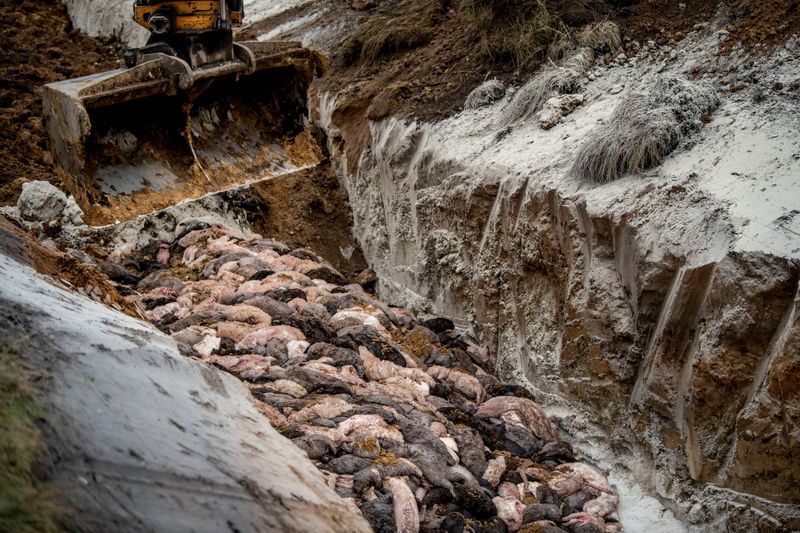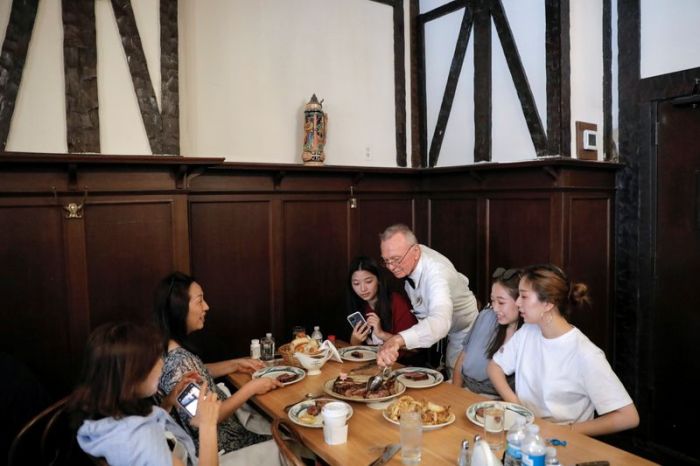COPENHAGEN (Reuters) – Prime Minister Mette Frederiksen on Thursday defended her government’s decision to cull all mink in Denmark last year, despite lacking the legal basis to do so, and said the oversight happened because “it was busy”.
In efforts to forestall the spread of a mutated variant of the coronavirus, the government ordered about 17 million mink culled, devastating an industry recognised in the fashion industry around the world for its high-quality furs.
“We were unfortunately forced to make a decision a year ago about the culling of all mink,” Frederiksen told reporters before entering the court where the commission is sitting. “It was the right decision, and now I will go in and answer the questions.”
Protests erupted outside the court, with some people carrying placards reading “Why is Mette lying?” and “Who controls Mette?”. Police apprehended two people.
While Danes broadly approved of Frederiksen’s initial handling of the pandemic, the government was thrown into political turmoil when it emerged that there had been no legal basis to order the cull of healthy mink.
The incident eventually led to the exit of the agriculture minister and parliament commissioned an inquiry into whether ministers including Frederiksen had known that the legal framework was absent.
Frederiksen sat for more than five hours in front of a judge and legal experts in the Copenhagen court house, saying she was unaware back then that the government was lacking a legal basis to order the move.
“The only right way would be that a government is told upfront whether there is a legal basis or not to make the decision,” Frederiksen said.
“That did not happen that day. There is no explanation other than that it was busy,” she said, adding that she did not blame anyone.
The commission is due to finish its investigation in April.
Frederiksen has apologised publicly but maintains the decision was sound and based on assessments by health authorities.
The government gained support from parliament to legalise the cull a few weeks after it admitted it lacked the legal framework.
“I have made many difficult decisions during the corona epidemic, this was one of the most difficult,” Frederiksen said during the questioning.

























